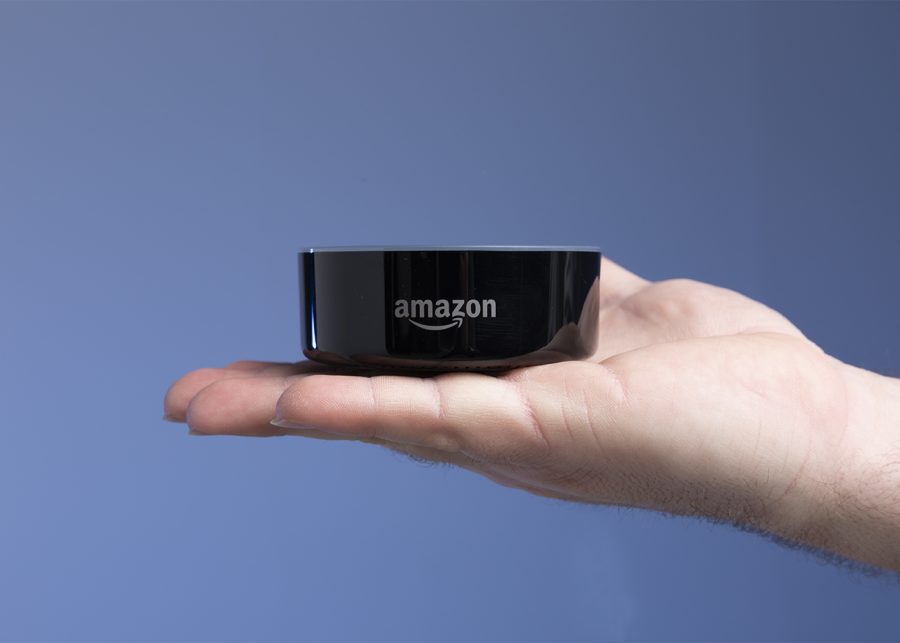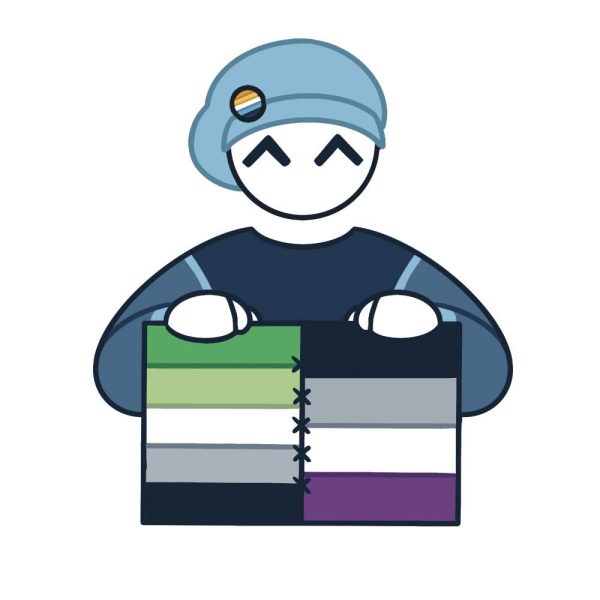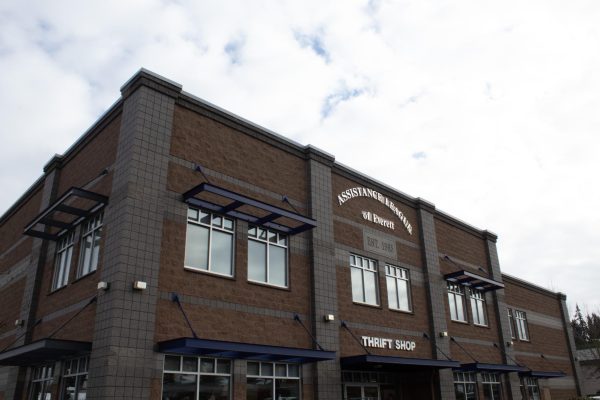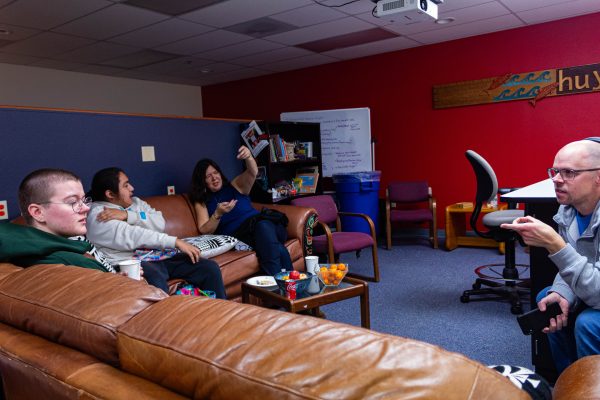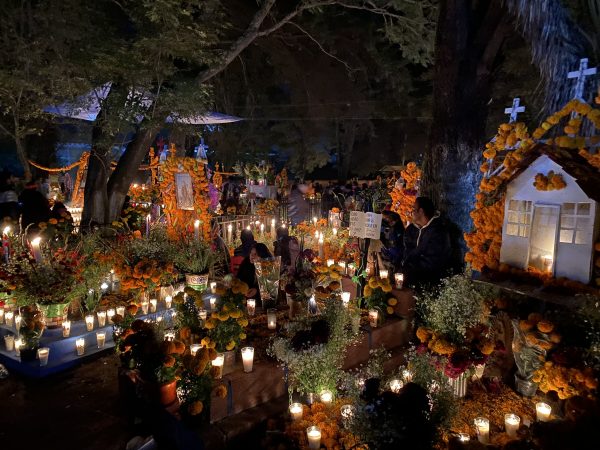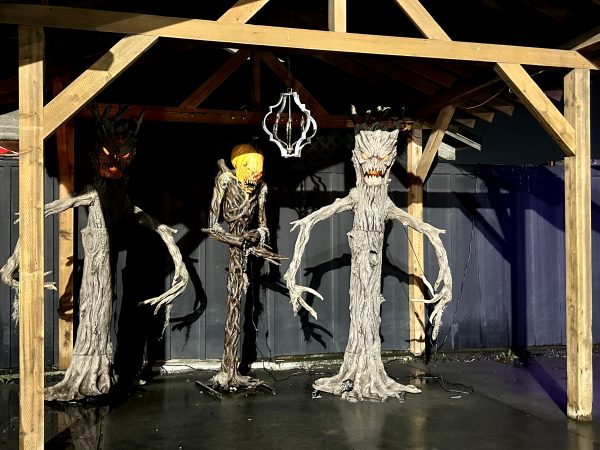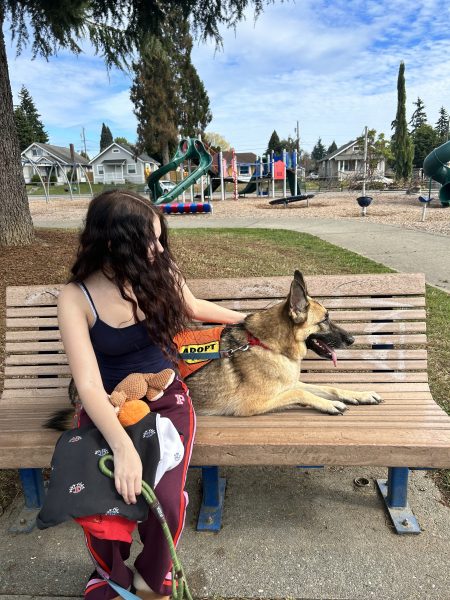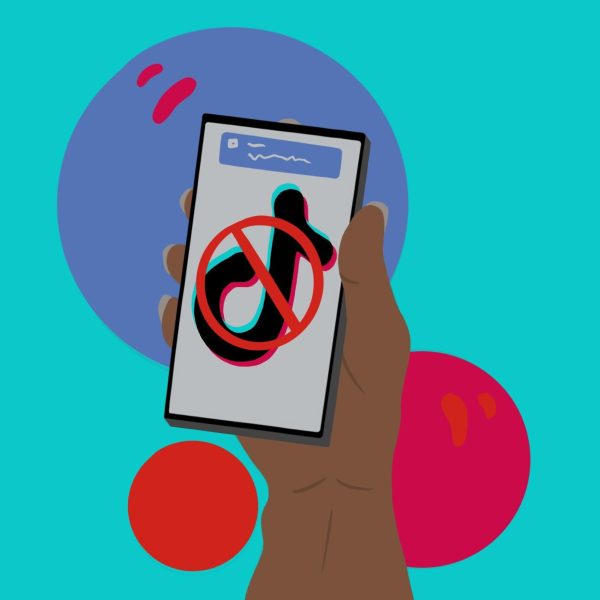Alexa on Demand: Amazon Pilot Program On Campus
Shown: An Amazon Echo device, part of a pilot program on campus. “The goal is to provide these devices in areas to to make it highly accessible and engaging for students,” said William Frankhouser, IT lead web developer for EvCC.
Amazon’s Alexa is expected to make its debut as a pilot project at EvCC early this March, running as a test through spring quarter. Amazon has provided 25 second-generation Echo devices and $1,000 dollars to EvCC. Tim Rager, EvCC’s Executive Director of Information Technology (IT), and William Frankhouser, IT lead web developer for EvCC, have been working on this pilot for several months.
Rager, who started as the new director this last July, has links to Amazon and has been trying to connect EvCC with new technologies. Rager contacted Amazon Web Services (AWS) and they evaluated EvCC for programs and decided to try the new Alexa pilot on campus. Once the program had started Frankhouser helped set up the pilot and has worked on the project ever since.
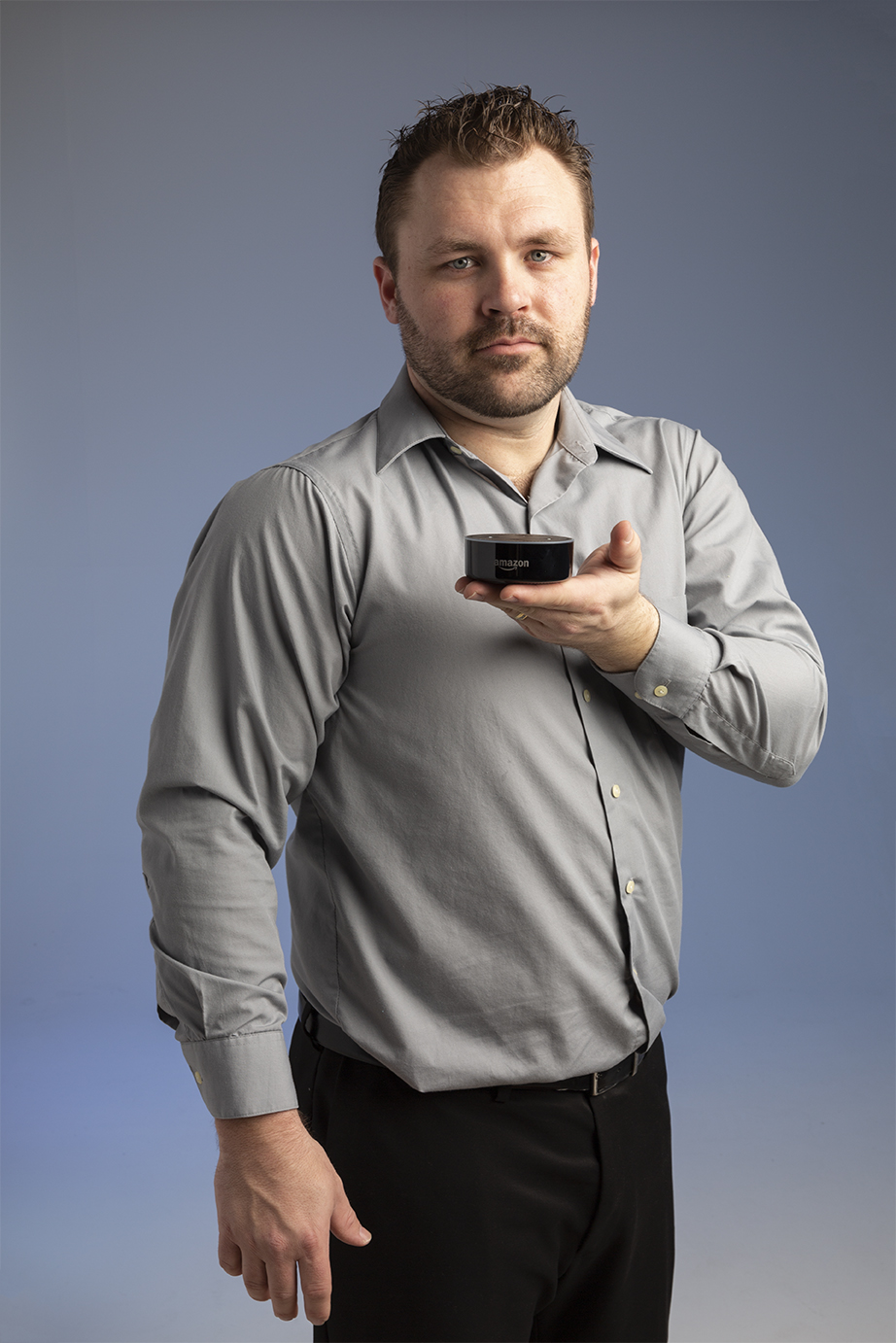
EvCC’s Information Technology (IT) lead web developer, William Frankhouser, leads the project.
“So as part of our development team, we have opportunities to really create, develop and integrate new services,” said Frankhouser, “We’re here really to help kind of integrate what services are available and tools to help get students more engaged and involved. Especially on the technology side.”
This pilot has already been tested at St. Louis University (SLU), where they bought more than 2,300 Echos and placed the devices in university dorm rooms.
EvCC is testing this program under the Alexa for Business model which, unlike the personal Alexas, will be programmed with questions and answers directly related to EvCC called private skills. These questions were based on the private skills developed by SLU. The devices can also use public skills just like personal Alexas with answers to generic questions.
The word “Alexa” followed by “ask Feather Star” will be used to access EvCC specific questions. Feather Star is named after a sculpture on campus.
An Amazon white paper, a type of technical document and a special report about the pilot, was provided by Rager and Frankhouser. It says the Echo devices will wait for the wake word and once it hears the wake word the device records the question and answer. “Once [it hears] the wake word, then it will start streaming for a small period of time to hear if you’re asking a question or not,” said Frankhouser. “We will only have specific reports of how many times a question was asked but it won’t give you specifics about who asked it and actually give us a recording of that. Only Amazon has access in their secure network just for reporting issues or reporting analytics.”
Rager said that he hopes the pilot program spurs a conversation about digital literacy. Especially regarding the cost of privacy versus the convenience of technology. “Just kind of a better understanding of how to serve people, how to serve our students. A better understanding of our capabilities,” said Rager, “A better understanding of technology and what it means to us, and how it can help us or hurt us. “
Devices will be placed in strategic accessible places such as Student LIFE, the security office, and the EvCC East county campus in Monroe. The devices will be tested to see how students, faculty and the community use the Alexas. “It’s a test for us to see if students like this technology, and if it does actually help them feel more engaged. So, one of the challenges I think for East County down in Monroe, is that they’re way down in Monroe. So will this help them feel more connected to us at the main campus? I don’t know, we’ll have to see,” Rager said.
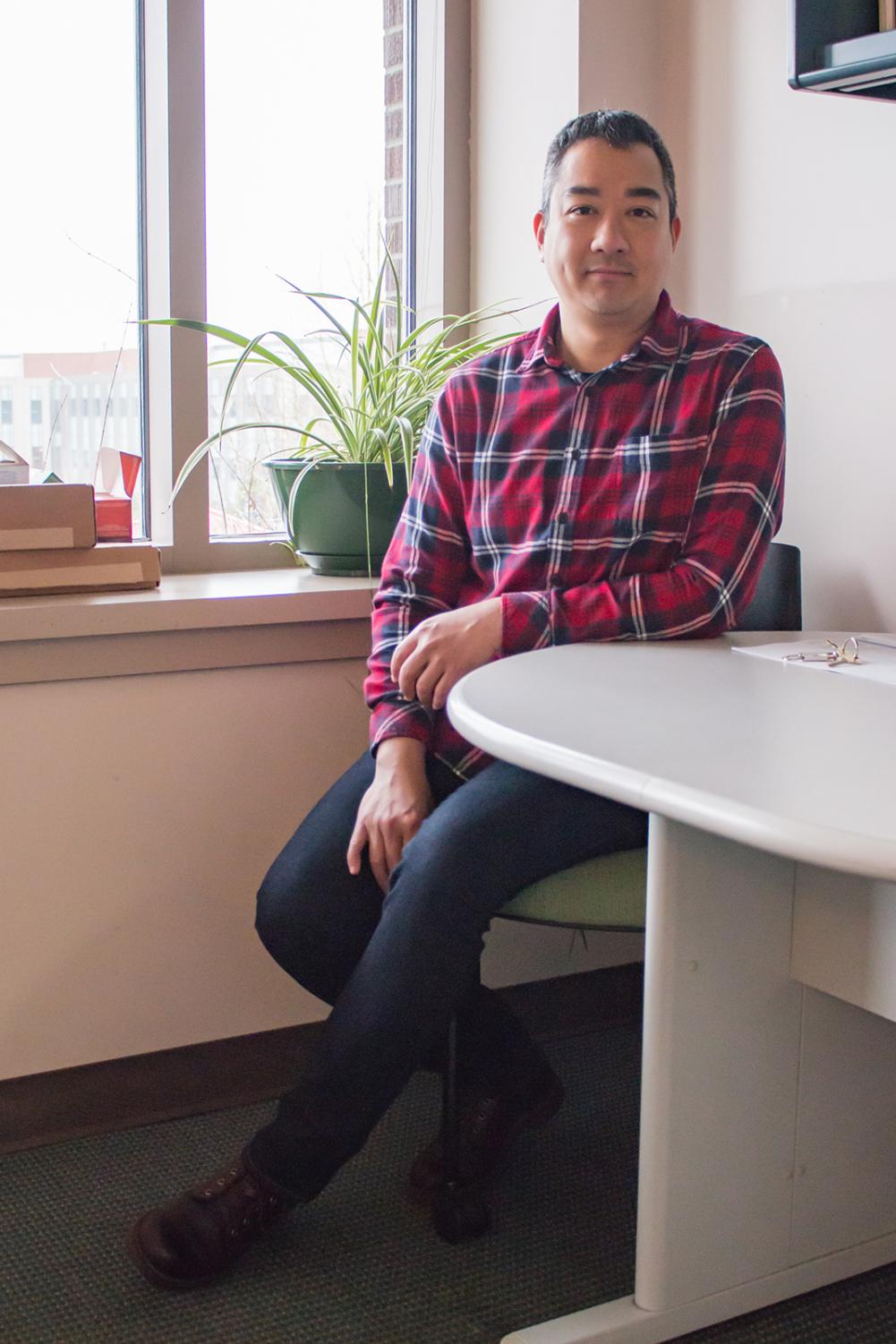
Tim Rager, Executive Director of IT, who brought the pilot project to campus, poses in his office. Ranger wants to see discussion and feedback over the project.
Both Rager and Frankhouser said that they are looking for feedback from students about the pilot. Along with the devices, there will be a paper with links to a feedback form and a QR code.
“So if there are specific questions that a lot of students are asking…and I haven’t programmed it, let’s get it added,” said Frankhouser, “It’s not just us defining what’s there. I think this is definitely open for students to be involved and add specific questions. If they want to know more about student housing, if they want to know more about athletics, we can add that. I think it’s an opportunity for students to be involved with the technology and also provide us feedback.”
For more information, please see:
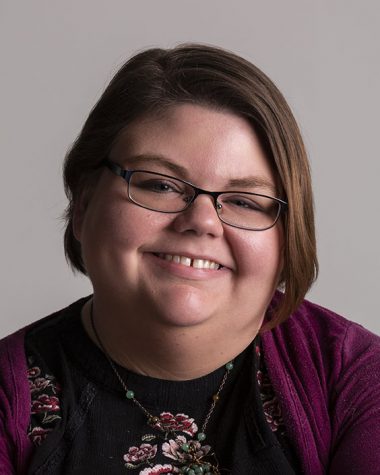
What interests you about journalism?
I think what interests me most about journalism is the opportunity to learn about other people and to feel...
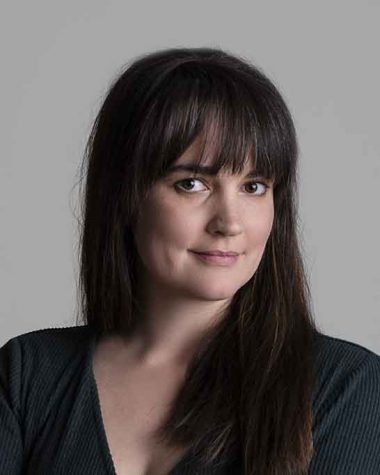
What interests you about journalism?
What I love about journalism is that it is a written and visual record of our history. As a journalist, you...

